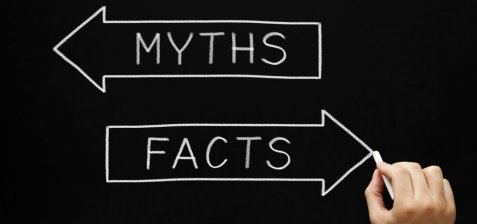A lot of people who think they understand leadership have fallen for some common myths and misconceptions. According to Lolly Daskal, it would be better to learn what these myths are so one can uncover the truth.
The truth is that ‘leadership is a privilege—maybe even a calling. It’s something that has to be earned and learned over time’.
To be a real leader, make sure you’re not building your own leadership on any of these commonly held myths:
1. The myth of entrepreneurial leadership
It’s easy to assume that all entrepreneurs are leaders, but just because someone has a great and timely idea and can organize and operate a business, the truth is they aren’t necessarily a leader.
2. The myth of management as leadership
Leadership cannot be equated with management, even if it often occurs. If you’re a manager, you’re focused on maintaining systems, processes, and best practices. But if you’re a leader, much of your time is spent working to influence people. They’re both important roles, but they’re not the same thing.
3. The myth of trailblazer as leadership
Just because you’re standing in front of the crowd, you’re not necessarily the leader. The best leaders take their place alongside their people, helping propel them forward to a shared mission and vision. They may even be behind them, watching their backs.
4. The myth of position as leadership
The No. 1 top myth about leadership is the idea that leadership resides in certain positions. If you’re a at the top, you’re a leader. If at the bottom, there’s no room for leadership. In reality, the truth is that leadership has absolutely nothing to do with position.
Every business and work group has a boss, but only some have a leader at the helm. So if you’re in charge, or if you aspire to be, you have a decision to make: are you going to be the boss or are you going to be the leader? If you’re going to choose the second approach, remember that:
1. True leadership is about influence, nothing more and nothing less.
2. True leadership cannot be awarded, appointed or assigned.
3. True leadership can never be mandated, only earned.
And the best proof is not the leader’s personal success but the success of those who follow.







Recent Comments